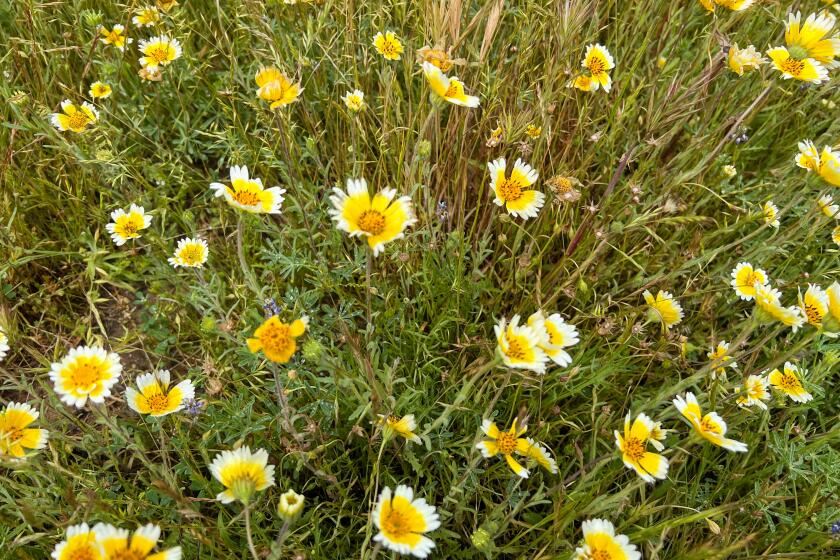Mythical
“The Peloponnese,” my friend Peter Poulos tells me, “is the real Greece. Really. This place is less populated and more beautiful than most of the trendy tourist places in this country.”
He says this as we cross the slender isthmus between mainland Greece and the paw-shaped southern peninsula of the Peloponnese. “It’s a different world down here,” he adds.
Peter is a saint. He’s a recent transplant from San Francisco to Athens, a Greek American who loves his roots so much he chose to move to a place where he has never lived. He’s saintly not because of this but, rather, because he has agreed to drive me and my two teenage daughters around the Peloponnese for a week. Peter is an entrepreneur, and one of his passions is the export market for Peloponnesian olive oil and honey. With the rest of the world having cottoned to the benefits of the Mediterranean diet, his job is not hard. The likes of Dean & DeLuca are guzzling up the products.
Few other countries need tourism right now more than Greece. And the Peloponnese, which gets a fraction of the visitors, is a bargain. Mountainous, forested, farmed and hauntingly lovely, the Peloponnese peninsula is home to some of the world’s historic ruins: Olympia, birthplace of the Olympic Games; Mycenae, citadel of Agamemnon, commander in the Trojan war; Sparta, home of the bombshell Helen and her cuckolded husband, Menelaus; Nestor’s Palace, the geriatric Argonaut who entertained extravagantly; Corinth, where St. Paul enlightened the Corinthians, and on and on.
If history is not your bailiwick, there are rolling white beaches, whitewashed villages, tavernas and luxury family-friendly resorts where you never need leave the premises.
After a three-hour drive from Athens, we reached Nafplio, a seaside town with a plaza lined with iron-balconied mansions, antique street lamps, a marble-lined square and a stone fortress on the hill above, overshadowing all. We strolled the cobblestoned town after eating Greek ice cream.
Peter, a theatrical storyteller, had the girls enthralled with tales of the Greek she-warrior Bouboulina, who spent her fortune fighting the Ottomans (who occupied Greece from 1458 to 1821). “She paid to build eight warships,” Peter was telling them, waving his hands in true Greek fashion, “and decided to lead a sneak attack on Nafplio, where the Ottomans had their military stronghold. She commanded her boats to fire on the impenetrable fortress,” he explained, pointing to the gloomy stone castle that grew out of the top of the cliffs. “She found it, well, impenetrable. Most of her boats were lost, but her actions contributed to the start of the War of Independence, which, happily, we won in 1832.”
Several hours south on the second claw of the Peloponnese paw is Monemvasia, a rock-island fortress connected to the mainland by a narrow causeway. Concealed on the rock is a medieval village so intact that, despite its modern bars, art galleries, restaurants and boutique hotels, it gives a good idea of what life must have been like in Byzantine Greece.
One-room churches perched on rocky outcroppings and a giant cathedral dominated the tiny center square. Paths meandered among scarlet bougainvillea-covered buildings that were rescued from ruins and are now homes to artists, poets and chefs. I could have spent a month in Monemvasia, and I briefly fancied myself sitting on a rooftop patio staring down at the pounding sea writing my long-planned novel.
Instead, we headed into the green hills above Monemvasia to the Kinsterna Hotel & Spa, which opened quietly in 2010 and has since leapt onto the world’s glossy magazine pages, hailed for its design, service and glorious setting. The Athenian owners took a 15th century ruin and turned it into one of the chicest hotels in Europe (and one of the best deals).
Its sun-steeped vineyards and gnarled olive groves make it a magical old-world setting. The girls and I slept in a room that was once a Byzantine kitchen but now has wood floors, sleek modern furniture and a glass and marble bathroom. The bed was so comfortable that I asked where I could get one. (Coco-Mat, I was told, a Greek company that has taken the sleep world by storm with mattresses made from coconut, horsehair, seaweed and cactus, among other things.) I was beginning to believe this business about things Mediterranean being good for health.
From here we crossed the paw, from the east to the southwestern edge, heading beyond Kalamata (stamping ground of the olive) in Messinia to what, five years ago, was a lonely stretch of beach.
Capt. Vassilis Constantakopoulos, one of the world’s wealthiest shipping magnates, was born in a village nearby and always loved this region. Twenty years before he died (in 2011), he bought thousands of acres, intending to develop part of it to revitalize the struggling local communities and to stop the flood of young men leaving for Athens.
Recently opened, Costa Navarino, his vision, has two luxury hotels, two golf courses, a water park, an outdoor movie theater, a kids-only hotel, shops, an olive press, an apiary, vineyards and maybe the finest spa I have lounged in. Although resort complexes are not my thing, I was seduced by Costa Navarino, particularly when traveling with children. I could let them loose, and they would return exercised and delighted.
One night they checked into the SandCastle, a hotel that accepts only kids. Really. Children can dispatch their parents for an entire night and choose summer camp-like activities in a designer space. My girls couldn’t believe their luck, and I couldn’t believe my peace.
I made a beeline for the temple-inspired Anazoe Spa and submitted to a hot seawater and seaweed bath followed by an olive oil wrap and massage, revving up for our ruins exploration the next day.
Ancient Messini, the grand and amazingly ignored ruins dating to 371 BC, are a 40-minute drive from Costa Navarino. We had the place to ourselves and roamed through what was once a theater, assembly hall, stadium and gymnasium, lined with Doric columns and marble flagstones. Myth has it that Zeus was born here and bathed in the same spring in which my girls cooled themselves after a rousing reenactment of gladiatorial skills in the amphitheater.
Nestor’s Palace is a 20-minute drive from the resort near the town of Pylos and is a grand example of Hellenic sophistication with gigantic halls, light wells, a sewage system, murals and what must have been a most envied wine cellar. Nestor appears in Homer’s tomes, “The Odyssey” and “The Iliad,” and was said to have overwhelmed his guests with his expensive lifestyle and unsolicited, and often ill-fated, advice.
On our way back to Athens, Peter insisted we stop at Olympia, which dates to 776 BC, to have a trot through the columns and around the stadium, imagining when athletes did the same, but stark naked.
There is something so agelessly impressive about the stacked columns, the lofty temple and the obvious worship of sport. “The games were supposedly to worship Zeus, but really, it was just like a football game today,” Peter said. “Nothing has changed. Even back then they spent a fortune to build a stadium in which to watch testosterone-fueled men beat each other.”
Driving back toward Athens, we climbed the lushly verdant hills of the Arcadia Mountains, passing landscapes that have not changed since the time of the ancients. Olive groves, some with 1,000-year-old trees, stood atop stacked rock terraces. Grapevines climbed up rocky flanks, and wide rivers rushed through the floor of gorges. Villages of white houses with orange-tiled roofs sat overlooking the serene scenery.
Peter filled in the hours telling us about the medicinal uses of Greek oil and honey. Both have been used since the time of Hippocrates, and honey is used still as a salve for wounds and for colds and flu.
The Greeks claim their olive oil is the best in the world because of their soil and climate. Despite a poor healthcare system in rural areas, Peter said, Greeks living outside the cities tend to live long and healthy lives.
I had met many people over the age of 100 in the villages. “We attribute this to our honey and oil,” he said. The oil, rich in monounsaturated fats, apparently lowers cholesterol and helps avoid heart disease.
I swore to return to the U.S., eat more olive oil and honey and get a mattress made of horsehair and seaweed. Maybe then my health would stand a Peloponnese-style chance.
And I might just live long enough to write that novel.
--
--
(BEGIN TEXT OF INFOBOX)
If you go
THE BEST WAY TO ATHENS
From LAX, Air France, KLM, British, Lufthansa, Alitalia, Turkish, US Airways, Delta and Swiss offer connecting service (change of plane) to Athens. Restricted round-trip fares
begin at $984, including fees and taxes.
TELEPHONES
To call the numbers below from the U.S., dial 011 (the interna-
tional dialing code), 30 (the country code for Greece) and the local number.
WHERE TO STAY
Monopati Rooms & Apartments, Kastro Monemvasia; 2732-061-772, www.byzantine-escapade.com. Doubles from about $88 to $107.
Kinsterna Hotel & Spa, Agios Stefanos; 2732-066-300, www.kinsternahotel.gr. Doubles from about $252, including breakfast.
Westin Resort, Navarino Dunes, Costa Navarino, Messinia; 2723-095-000, www.costanavarino.com. Doubles from about $246, including breakfast.
TO LEARN MORE
Greek National Tourism Organization, www.visitgreece.gr
Sign up for The Wild
We’ll help you find the best places to hike, bike and run, as well as the perfect silent spots for meditation and yoga.
You may occasionally receive promotional content from the Los Angeles Times.



